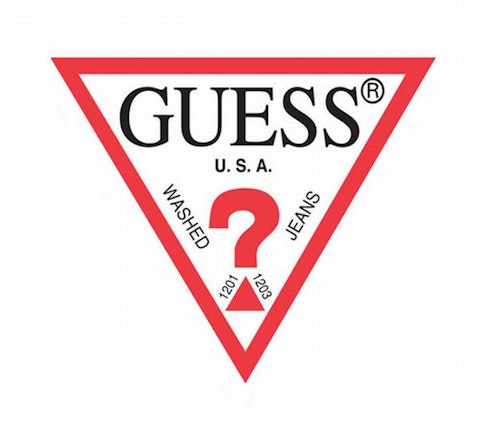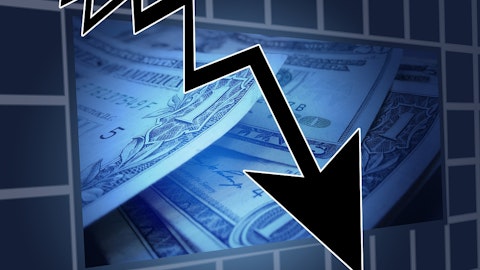Corporate insiders have two alternatives of how to acquire or sell their companies’ stock. The first alternative is to buy/sell shares through open market operations, while the second one is to make transactions using the so-called 10b5-1 plan. Generally, trading plans serve as a defense against unlawful insider trading due to the fact that insiders create these plans well in advance of a specific trade. Therefore, we tend to avoid examining insider trading activity in connection with any trading plans, as this activity does not seem to provide too much valuable information. Of course, a 10b5-1 plan provides benefits for an outside investor as well, considering that it might reduce the likelihood of wrong interpretations of insiders’ transactions. However, we do believe that the spontaneous insider trades might provide more insights into different companies’ prospects if and only if these trades are interpreted correctly. Moving on to the ultimate goal of this article, the Insider Monkey team identified three companies that saw high insider selling activity recently, so we will attempt to stipulate what might have caused their insiders to sell stock.

Most investors can’t outperform the stock market by individually picking stocks because stock returns aren’t evenly distributed. A randomly picked stock has only a 35% to 45% chance (depending on the investment horizon) to outperform the market. There are a few exceptions, one of which is when it comes to purchases made by corporate insiders. Academic research has shown that certain insider purchases historically outperformed the market by an average of seven percentage points per year. This effect is more pronounced in small-cap stocks. Another exception is the small-cap stock picks of hedge funds. Our research has shown that the 15 most popular small-cap stocks among hedge funds outperformed the market by nearly a percentage point per month between 1999 and 2012. We have been forward testing the performance of these stock picks since the end of August 2012 and they have returned more than 102% over the ensuing three years, outperforming the S&P 500 Index by more than 53 percentage points (read more details here). The trick is focusing only on the best small-cap stock picks of funds, not their large-cap stock picks which are extensively covered by analysts and followed by almost everybody.
Guess? Inc. (NYSE:GES) is one of the three companies mentioned above that saw insiders sell stock recently. Director Anthony Chidoni offloaded 20,000 shares this Tuesday at a weighted average sale price of $23.18. After the sale, the Director currently holds a stake of 151,772 shares. The shares of Guess are more than 5% in the green year-to-date despite suffering a few headwinds throughout the year. To be more specific on that, the company’s net revenue for the second quarter decreased by an annual 10.2% to $546.3 million, primarily owing to a strong U.S. dollar. Even so, Guess? Inc. (NYSE:GES)’s net revenues in constant currency decreased by only 0.6%. But that is no reason for optimism, even though the second-quarter results came in stronger-than-expected. The company reported net earnings of $18.3 million, compared with $22.0 million a year ago. Hence, there is a possibility that the Director’s sale is somewhat related to company’s struggling business. Joel Greenblatt’s Gotham Asset Management holds nearly 2.52 million shares of Guess? Inc. (NYSE:GES) as of June 30.
Follow Guess Inc (NYSE:GES)
Follow Guess Inc (NYSE:GES)
Receive real-time insider trading and news alerts
Let’s now take a look at the next two companies that registered heavy insider selling activity recently.
Mentor Graphics Corp (NASDAQ:MENT) has seen three different insiders offload shares over the past few months, but we will stick to the most recent transactions. Walden C. Rhines, Chairman of the Board and Chief Executive Officer, unloaded 20,000 shares this Monday and 150,000 shares last week at prices ranging from $25.55 to $25.86. Following these transactions, the executive holds 195,336 shares. The leader in electronic design automation has seen its stock advance by over 17% since the beginning of the year, greatly outperforming the broader market. Exactly a month ago, Mentor Graphics Corp (NASDAQ:MENT) announced the acquisition of its majority-owned subsidiary Calypto Design Systems Inc., which now represents a new standalone business unit of the company. This step revealed the company’s confidence in the future potential of Calypto’s products and technologies, which might in turn provide significant benefits for the company itself. In the meantime, Carl Icahn of Icahn Capital LP put his faith in Mentor Graphics Corp (NASDAQ:MENT), disclosing a 16.12 million-share stake in the company through the 13F filing for the June quarter.
Follow Mentor Graphics Corp (NASDAQ:MENT)
Follow Mentor Graphics Corp (NASDAQ:MENT)
Receive real-time insider trading and news alerts
Lastly, the agriculture company Monsanto Company (NYSE:MON) also saw one of its insiders sell stock recently. Steven C. Mizell, Executive Vice President of Human Resources, reported selling 6,100 shares this Tuesday at a weighted average price of $89.40 per unit, trimming his stake to 9,374 shares. The executive also owns 976 shares through a retirement savings plan. Just recently, Monsanto Company (NYSE:MON) announced an accelerated share repurchase (ASR) program under which the company is set to buy back $3 billion worth of common stock. This surely indicates that the company’s management believes that the stock is currently trading at an attractive level. In fact, the stock has lost 24% since the beginning of the year. However, numerous lawsuits have been filed against the agriculture company claiming that its Roundup herbicide has instigated cancer in people exposed to this chemical product. Roundup generated revenues of roughly $4.8 billion for Monsanto in fiscal 2015, so the recent allegations might put downward pressure on the company’s stock performance and top-line as well. Larry Robbins’ Glenview Capital is by far the largest stockholder of Monsanto Company (NYSE:MON) within our database, holding 11.07 million shares.
Follow Monsanto Co W (NASDAQ:MON)
Follow Monsanto Co W (NASDAQ:MON)
Receive real-time insider trading and news alerts
Disclosure: None


